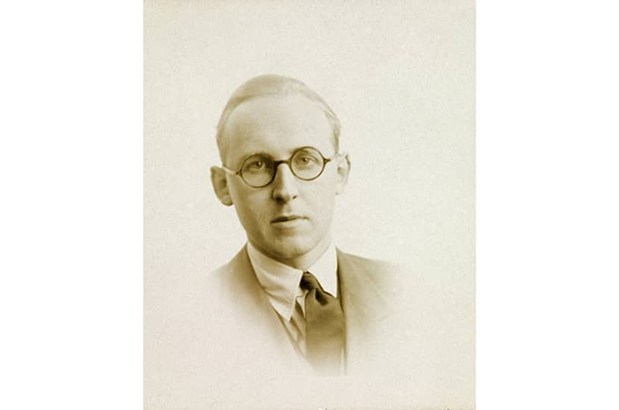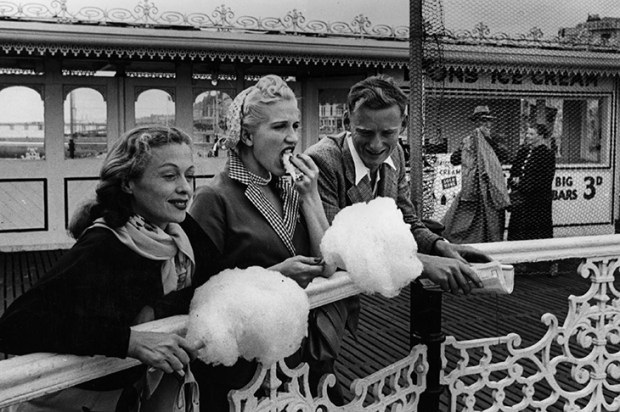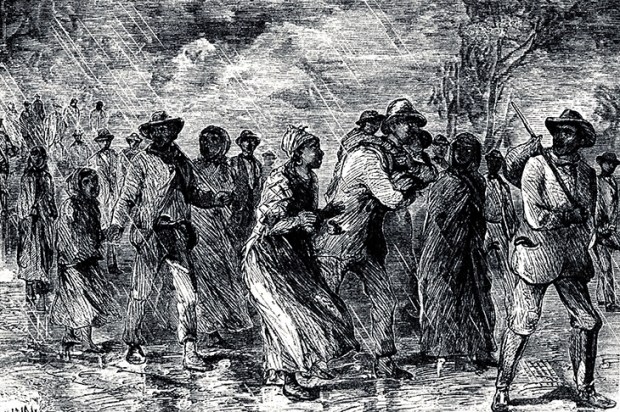Towards the end of Live a Little, one of its two main characters says: ‘I’m past the age of waiting for something to go wrong. It already has.’ And we know what has, because some 200 pages earlier we have seen the man as a young boy, just before the second world war, pulling his mother’s underwear out of the laundry basket. Here is how the moment, and its repercussions, are described: ‘He climbed into his mother’s bloomers and tumbled into hell.’
Let’s pause to consider the comic elegance and precision of that sentence. I think it’s fair to say that only Howard Jacobson could have written it, and not just because of the subject matter (I can’t help feeling that he’s not the first Jacobson character to have done this; there is at least a sense of inevitability that one of them, one day, would). Just look at the way he makes the English language dance for us, those Ls, those Bs, those BLs. And let’s especially salute that use of the word ‘bloomers’, which, as the other chief character observes, would be incomprehensible to anyone younger than them.
Which would be almost everyone. Shimi Carmelli and Beryl Dusinbery, two people whom we know are destined to meet, but don’t until more than half the novel has passed, are in their tenth decades. It is a tricky subject, that of nonagenarian love: I’ll never forget Beckett’s Malone trying to insert his sex into a woman’s like someone trying to stuff a pillow into a pillowcase. What’s remarkable is the tact that Jacobson uses. ‘Age is not a comedy,’ says Mrs Dusinbery (she’s fictional, I know, but I’m not going to tempt her outrage by calling her ‘Beryl’). ‘Which is not to say it’s a tragedy either. Let’s agree to call it cataclysmic and have done.’
Here age is not so much about increasing physical affliction; it’s about simply having been around for so long. Mrs Dusinbery has been around so long that the novel is vague as to how many times she’s been married. Neither can she remember how old her sons are, or indeed how many she has. And yet she is, despite forgetting certain words, formidably compos mentis; and indeed becomes more so as the novel progresses and she exercises her brain with Shimi.
This, I think, is the core of the novel: it’s actually as much about language and linguistic deftness as it is about the human heart (I suspect Jacobson might say that language and the human heart are extremely adjacent). Some novels — especially those that verge on the incident-free, such as this one — can go off the boil in the reader’s head: yes, I get it, we say to ourselves. Live a Little actually gathers pace as it goes along, the characters, as they converse, striking sparks off one another. One half of the dialogue comes from a gloomy, introverted man, with a ‘long, miserable’ face, ‘like a horse waiting to be shot’; the other from a woman who caused her two husbands to faint when she walked down the aisle in her wedding dress, but, because of her background as an English teacher, makes the language sit up and pay attention whenever she speaks.
Mrs Dusinbery’s sense of humour (which I bet Jacobson took as much pleasure in conjuring as we do in reading) Shimi describes as ‘hellish’. Is this why he is comfortable with her in the end, having tumbled into hell in 1939? This is a novel rich in correspondences, and also in wisdom, and a kind of audacity.
Got something to add? Join the discussion and comment below.
Get 10 issues for just $10
Subscribe to The Spectator Australia today for the next 10 magazine issues, plus full online access, for just $10.
You might disagree with half of it, but you’ll enjoy reading all of it. Try your first month for free, then just $2 a week for the remainder of your first year.














Comments
Don't miss out
Join the conversation with other Spectator Australia readers. Subscribe to leave a comment.
SUBSCRIBEAlready a subscriber? Log in